Duncan MacDonald
Jakarta 18 September 2016
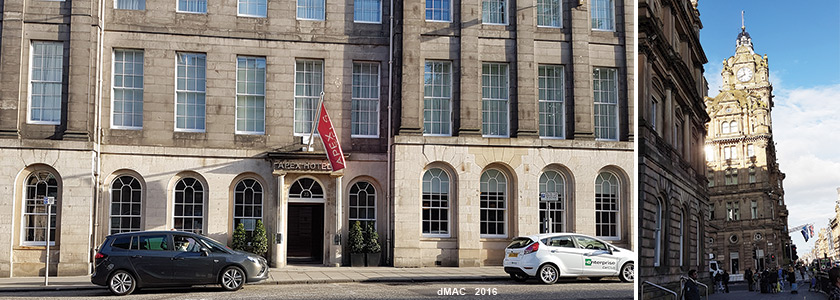
Apex Hotel Waterloo Place Edinburgh Edinburgh
Apex Hotel - our accommodation in Edinburgh
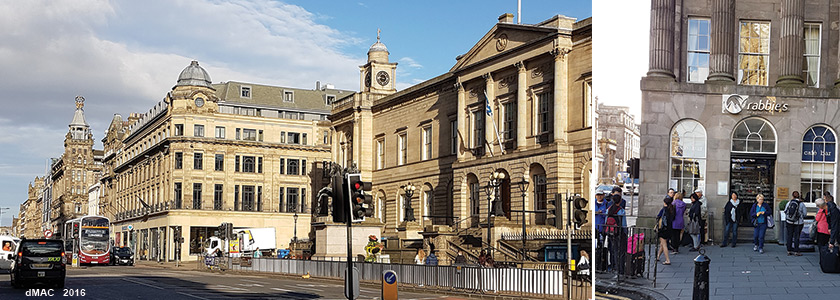
Waterloo Place Edinburgh Rabbies Tours Edinburgh
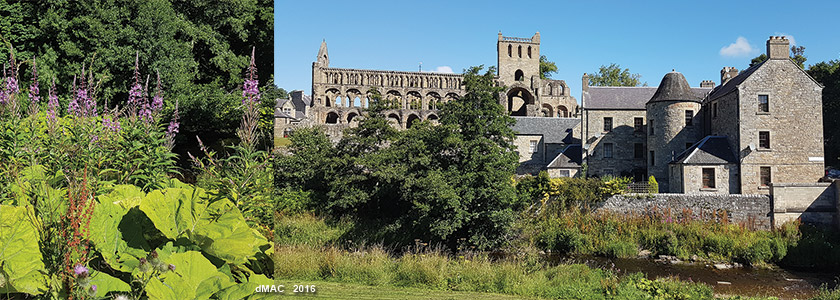
Heather Jedburgh Jedburgh Abbey
Jedburgh Abbey was founded in the 12th century in the Scottish town of Jedburgh, 10 miles north of the border with England. It was dedicated to the Virgin Mary as a fully fledged abbey, probably in 1147, by King David 1 of Scotland. It was establish by Augustine monks. As well as the lands and chapels in southern Scotland, Jedburgh Abbey owned substantial land in Northumbria. After the defeat of the English in 1297 at Sterling, by William Wallace, the abbey was pillaged and wrecked by the English in retribution. During his reign in the 14th century, Robert The Bruce of Scotland, continued to patroise the church. After the Scottish defeat in 1346 at the Battle of Neville's Cross, the English once again damaged the church. The abbey faced more destruction in 1410, 1416 and by the Earl of Warwick in 1464. In 1523 the town and abbey were set ablaze by the Earl of Surrey. The end came for the great Abbey of St. Mary of Jedburgh in 1560 and the comming of the Scottish Reformation.
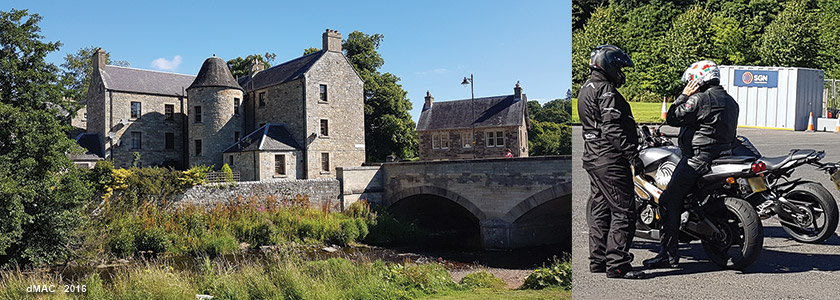
Jedburgh Jedburgh Bikies
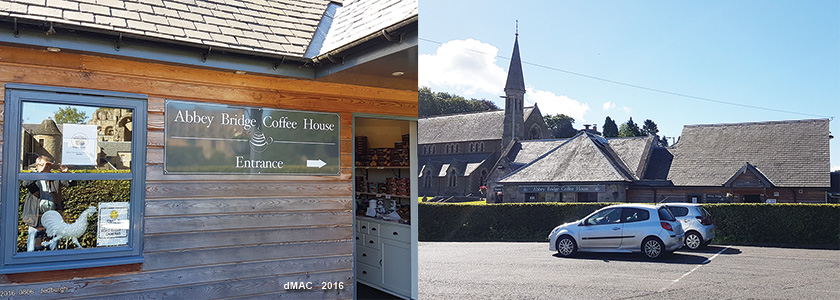
Abbey Bridge Coffee House Jedburgh
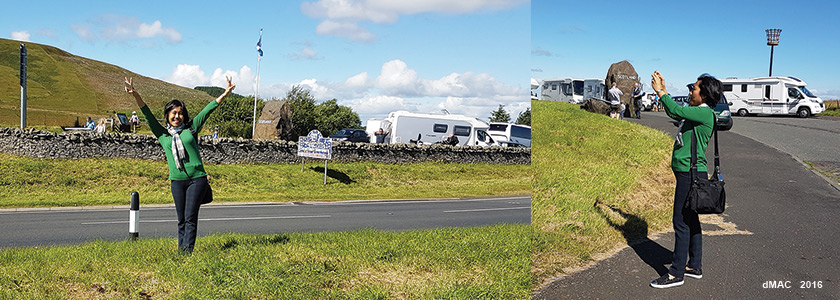
Shinta on Scottish / English border
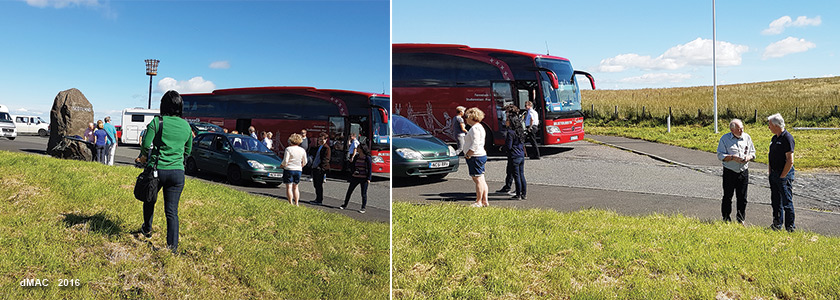
Shinta Scottish / English border Frank with Bus driver
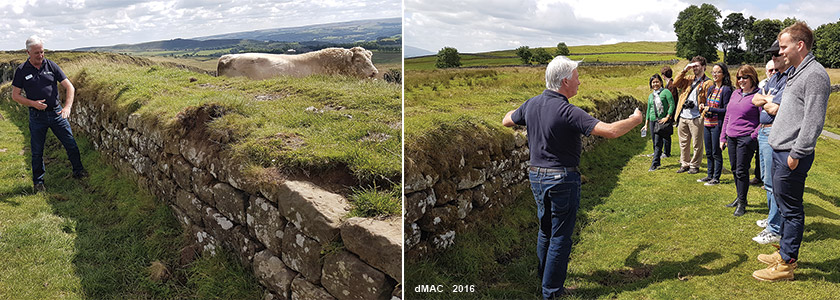
Bus Driver Hadrian's Wall Bus Driver lecturing Shinta Frank and bus passengers
Hadrian's Wall was a defensive fortification in the Roman province of Britannia, began in AD 122 in the reign of Emperor Hadrian. It represented the northern limit of the Roman Empire. The Wall was 80 Roman miles long or 117.5 km (73.0 miles). It is the largest Roman monument in the world. A popular misconception is that Hadrian's Wall marks the border between England and Scotland. This is not the case; Hadrian's Wall lies entirely within England.
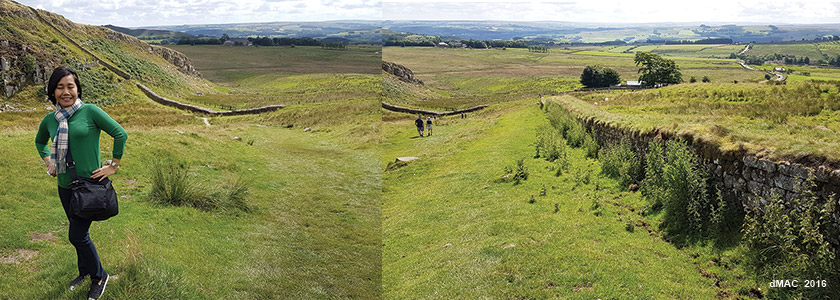
Shinta Hadrian's Wall
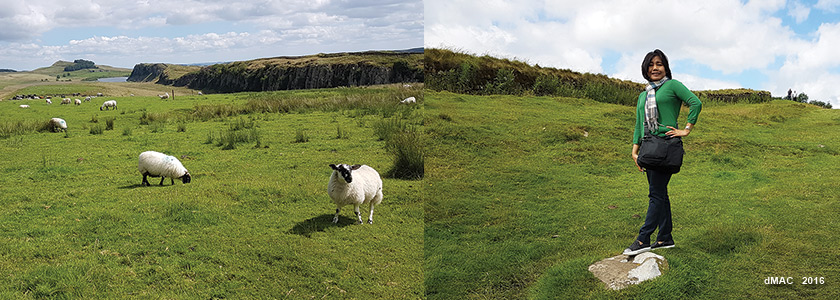
Sheep Hadrian's Wall Shinta
The construction of Hadrian's Wall was carried out almost entirely by three legions in the provence; the Second Legion based at Caerleon near Newport in south Wales, the Sixth from York and the Twentieth stationed at Chester. Within their ranks the legions contained archetect-engineers, surveyors, stone masons, carpenters and glaziers - all the skills required for the most massive building task. The Roman army did not employ slave labour in their building projects. The building was to take at least six years and modifications were still going on at the time of Hadrian's death in 138.
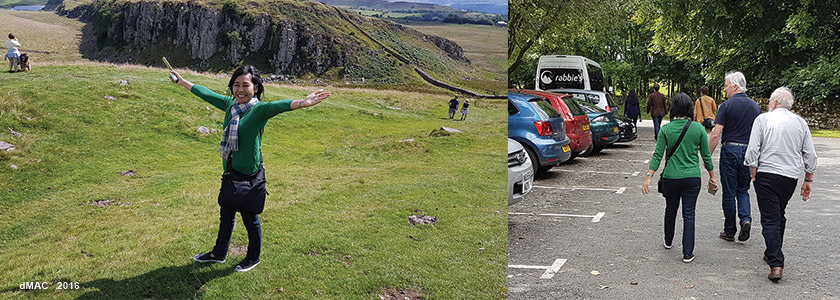
Hadrian's Wall Shinta Shinta Driver Frank back to bus
